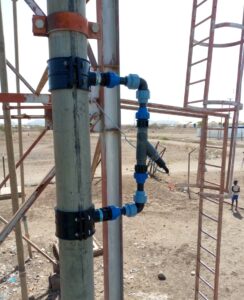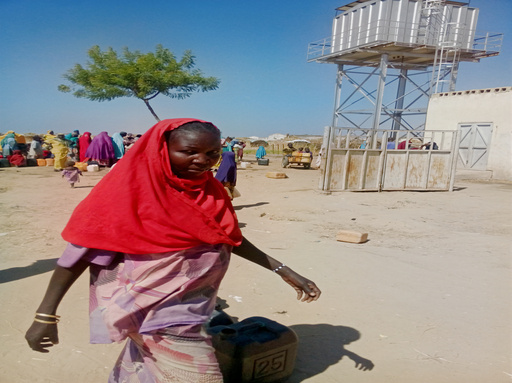Off-grid sensors in a refugee camp
Humanitarian Grand Challenges is a partnership whose goal is to find and accelerate life-saving or life-improving innovations to help the most vulnerable and hardest-to-reach people impacted by humanitarian crises caused by conflict. Today, millions of people are living in humanitarian crises and are still inaccessible due to armed conflict and conditions. Upande is using this grant to pilot offline IoT solutions in remote locations like refugee camps and Internally Displaced Persons (IDP). Namely to monitor essential water systems. Data on the performance and usage of water, sanitation and hygiene assets in camps is difficult to measure, usually left to staff doing individual rounds or collecting complaints. As a result, there is a little data-driven decision-making regarding assets, and no early warning in place on performance. Upande is working together with two international Non Governmental Organisations (iNGOs) which are TdH (Terres des Hommes) and NRC (Norwegian Refugee Council).
TdH and NRC offline IoT setups monitor active chlorine concentration and water levels in tanks for most refugee locations like Kalobeyei in Kenya and an IDP camp in Rann in Nigeria. Upande Ltd is providing Upande smart sensors that will24/7/365 collect the data on the parameters of interest like the water level, flow, and chlorine indicators. It then sends the information to the offline Upande IoT in a Box which processes the data and displays it on a dashboard on a local monitor. The Upande IoT in a Box is built such that when an internet connection is detected, it will synchronize all the data it has collected to the online platform. For water security, the internally displaced people in these areas are able to access well-treated clean water reliably without downtime in water provision. The Upande sensors are easy to operate and are very affordable offline tools, which allow local partners to maintain their own setup without external support.



